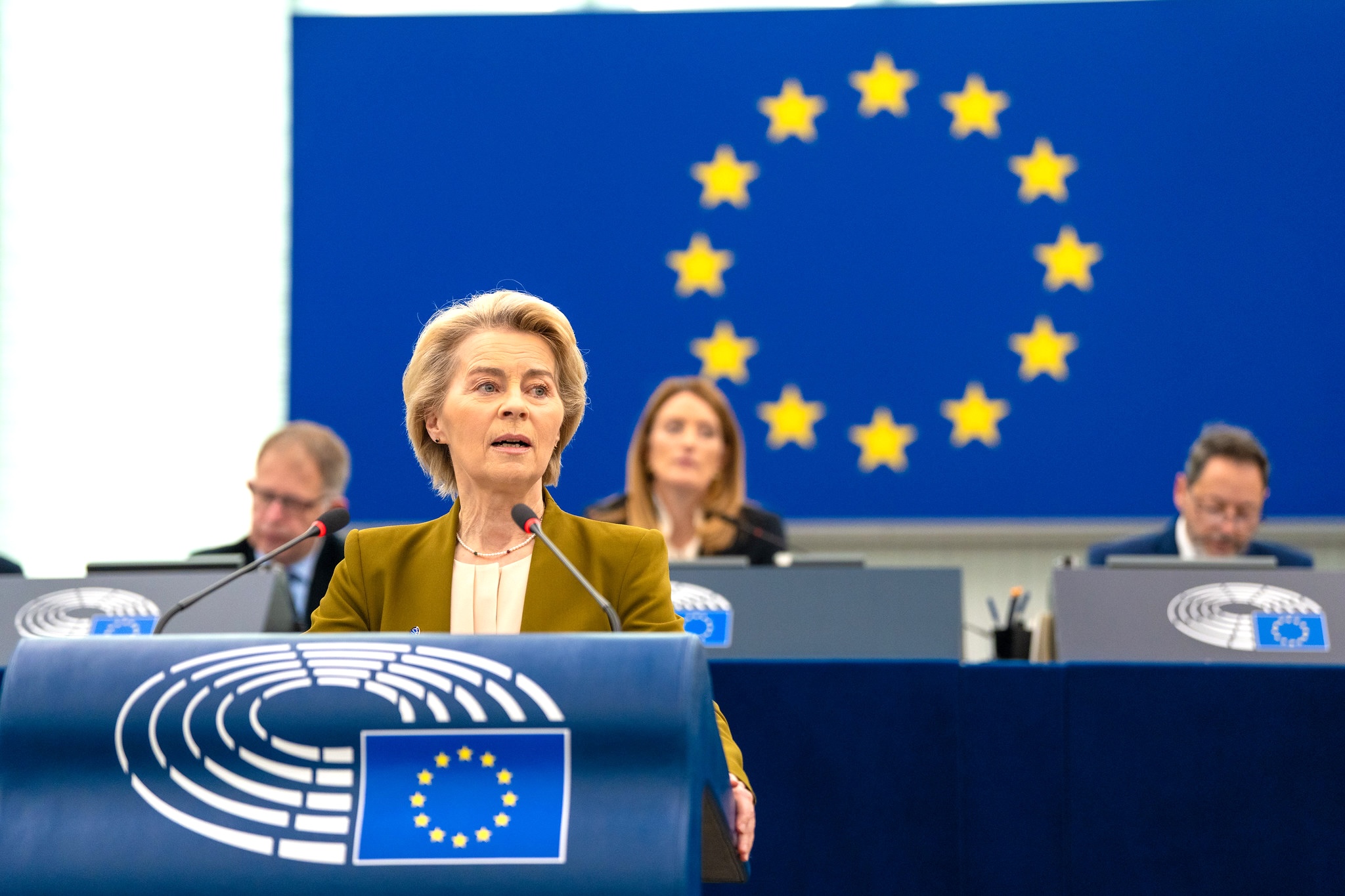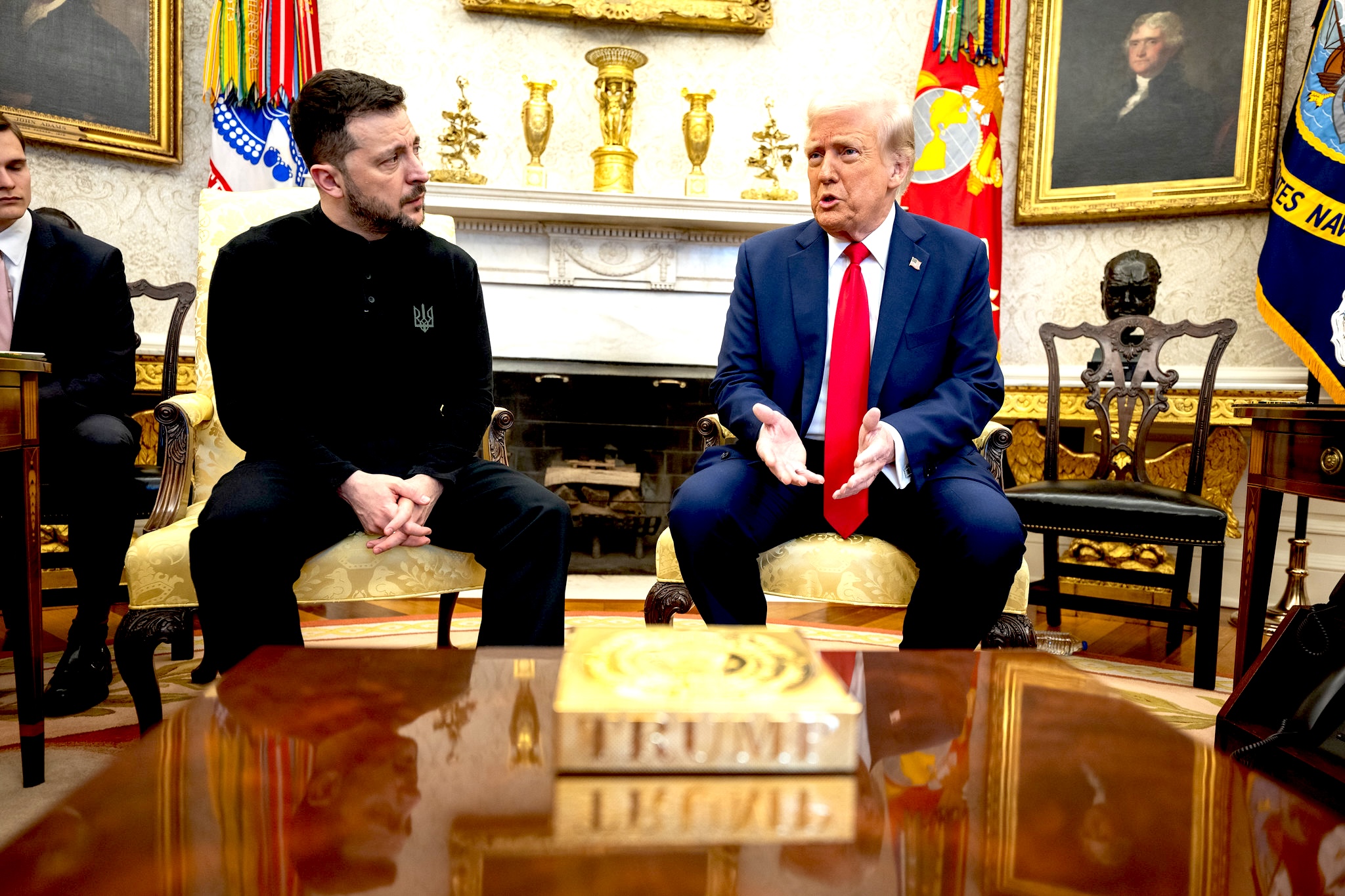Russia Matters, 3/28/25
- Russia and Ukraine are in a war of attrition, which “will lead to a gradual but steady erosion of Kyiv’s position on the battlefield, regardless of any U.S. or allied attempts to impose new and greater costs on Moscow,” according to the U.S. intelligence community’s annual Worldwide Threat Assessment presented this week. The document, which as its predecessor, refers to Russia as America’s adversary, predicts that Vladimir Putin “will be unable to achieve … total victory” in spite of having sacrificed 750,000+ in killed and wounded Russian soldiers, but acknowledges that “Russia in the past year has seized the upper hand in its full-scale invasion of Ukraine and is on a path to accrue greater leverage to press Kyiv and its Western backers to negotiate an end to the war that grants Moscow concessions it seeks.” It also follows from WTA-2025 that both Volodymyr Zelenskyy and Putin “for now probably still see the risks of a longer war as less than those of an unsatisfying settlement.” For a more detailed review of WTA-2025’s Russia-related propositions, see this blog post.
- “Our troops have the strategic initiative along the entire contact line. Only recently, I said that we would squeeze them into a corner, but now we have reason to believe that we are set to finish them off,” Putin claimed while visiting the Russian Northern Fleet’s Arkhangelsk nuclear submarine on March 27. During the visit to this Project 885M Yasen-M vessel, Putin claimed that the Russian armed forces had captured 99% of the Luhansk region and over 70% of the Donetsk, Zaporizhzhia and Kherson regions. Putin’s estimate regarding the four provinces is close to a March 23 estimate provided by the U.S.-based Institute for the Study of War to RM. According to the ISW estimate, Russian forces have captured 73.6% of Kherson Oblast; 73.3% of Zaporizhzhia Oblast; 70.2% of Donetsk Oblast; and 99.3% of Luhansk Oblast. It also follows from the interactive map maintained by Ukraine’s DeepState OSINT team that Russian forces had captured 46 square miles (118 square kilometers) in the 30 day period from Feb. 21, 2025, to March 23, 2025. It follows then that if Russia were to focus only on these four regions, advancing at this rate of 46 square miles per 30 days (or some 1.5 miles per day), then it would take Russian forces more than 15 years to “finish off” the takeover of these four regions, ceteris paribus.
- In the past month (Feb. 25–March 25, 2025), Russia gained 73 square miles of Ukraine’s territory, an area roughly equivalent to about 3 Manhattan islands, according to the March 26, 2025, issue of RM’s Russia-Ukraine War Report Card. Meanwhile, in Russia’s Kursk oblast, Ukraine currently controls just 32 square miles, or 4%, of the 470 square miles it controlled in early autumn 2024, according to the card.
- The separate talks U.S.officials held first with Ukrainian officials, then with Russian officials, then with Ukrainian officials again, in Saudi Arabia on March 23–25, failed to either usher in a ceasefire in the Black Sea or prevent violations of an earlier moratorium on Russian and Ukrainian attacks on each other’s energy infrastructure. The three sides produced competing accounts of the outcomes of the talks, from which it could be inferred that the biggest obstacles to the Black Sea ceasefire are the conditions Russia has added to its account of the talks. The Kremlin said the agreement can enter into force only after Western sanctions impacting its agricultural exports are lifted, which the EU has rejected. That Russian-U.S. talks, which lasted for 12 hours on March 24, failed to produce any breakthrough was stated openly by one of the Russian negotiators on March 28. One of Russia’s negotiators and former deputy foreign minister Grigory Karasin said U.S. proposals at the talks were “unacceptable” and predicted that negotiations may drag on into next year. While keen to refrain from antagonizing Trump, who has invested political capital into the effort to end the war, the Kremlin didn’t expect a breakthrough at the talks in Saudi Arabia. This follows from Putin’s choice of Karasin and Sergei Beseda, who had lost high-ranking posts in the MFA in 2019 and FSB in 2024, respectively, some time ago, and whom Russian commentator Georgii Bovt described as “elderly retirees,” as the two lead negotiators for the March 24th talks. If that signal was not strong enough, then Putin’s spokesman Dmitry Peskov’s preview of the talks, in which he said, “we are only at the beginning of this path,” was.
- This week has seen U.S. Secretary of State Marco Rubio reject the notion of setting any deadlines for the Russian-Ukrainian peace talks, even though his president has earlier promised to end the war in a day, or in 100 days. When asked on March 28 how long he anticipated the negotiations would take, Rubio responded: “We’re committed to trying to achieve peace as long as it takes. That doesn’t mean that I can guarantee you that there’s going to be an agreement in a week or a month. I just can’t put a timeframe on it because it doesn’t depend on us. It depends on the Russians, and it depends on the Ukrainians. It also depends on our partners in Europe who have sanctions that will have to be taken into account, I believe, as part of any final deal.” During his campaign for presidency last year, Trump claimed he could end the Russian-Ukrainian war within 24 hours of taking office. Upon beginning his term on Jan. 20, however, Trump designated retired Lt. Gen. Keith Kellogg as his special envoy for Russia and Ukraine and tasked him with ending the war within 100 days, which put the deadline by or on April 30, 2025. More recently, “people familiar with the planning” of the Trump administration’s Ukraine peace efforts told Bloomberg they hope a broad ceasefire in Russia’s war in Ukraine can be reached by April 20, which this year is Easter in both the Western and Orthodox churches. That Rubio now refuses to offer a deadline for completing talks might be an indication that his evaluation of prospects of success at the negotiating table in the near future has evolved.
- Even as European leaders rejected this week the possibility of easing sanctions on Russia per its demands as a precondition for implementing the Russian-Ukrainian Black Sea ceasefire, some European majors have begun to eye returning to Russia. Vitol, Trafigura and Gunvor are all weighing when to re-enter Russia’s markets, according to FT. In addition to these European oil traders, South Korea’s Samsung, LG Electronics and Hyundai are weighing whether to re-expand their presence in Russia, according to Korea Times. This week has also seen Putin welcome a Western consumer flagship, Italy’s Ariston, back by canceling the temporary nationalization of its Russian unit, according to AFP. Last week saw Putin tell the Russian Cabinet of Ministers to create a procedure for Western businesses to return to Russia. It has also been reported by Reuters earlier this month that the Trump administration is working on a plan that would ease sanctions against Russia, which is under more sanctions than the next six targets combined, according to The Economist. More recently, Rubio said on March 26 the United States will evaluate Russia’s aforementioned demands for easing sanctions.
- Ending the war in Ukraine will be on Chinese Foreign Minister Wang Yi’s agenda when he holds talks with Russian leaders during his visit to Russia on March 31–April 2. Meanwhile, North Korea, which has reportedly sent an additional 3,000 troops this year to fight against Ukrainian forces, is already in talks with Russia on potential visits by Kim Jong Un to Moscow and by Sergei Lavrov to Pyongyang.




